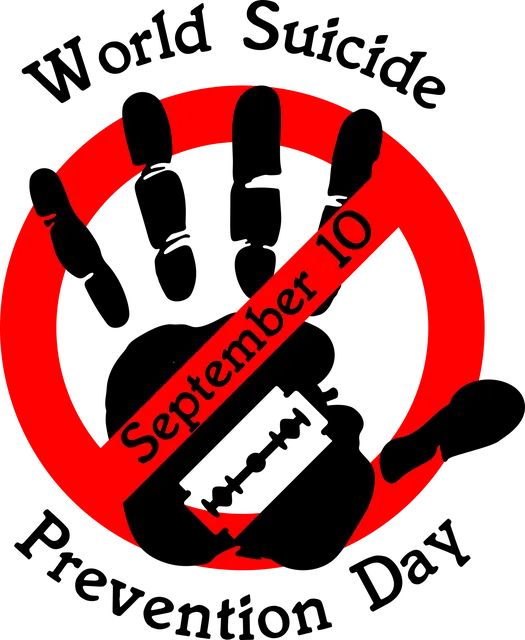Boulder Kaiser's holistic mental health programs integrate evidence-based practices like mindfulness, CBT, and positive psychology to cultivate resilience through the RFM (Recovery, Flexibility, Mastery) framework. These programs empower participants with practical skills for stress management, emotional regulation, and personal development, measured through robust evaluations showcasing improved well-being and sustained mental health enhancements. Their proactive approach offers a step-by-step guide for organizations to implement similar resilience exercises in diverse settings, fostering a culture of enhanced coping mechanisms.
“Resilience is a game-changer in navigating life’s challenges, and the RFM (Resilience, Flexibility, and Mastery) model offers a powerful framework. This article explores how the renowned Boulder Kaiser Mental Health Programs integrate RFM exercises to build resilience. We’ll guide you through understanding RFM’s role, providing an overview of these programs, and offering a step-by-step implementation strategy. Additionally, we’ll delve into measuring success and evaluating the impact of RFM initiatives, highlighting their effectiveness in fostering mental well-being.”
- Understanding RFM and Its Role in Resilience Building
- The Boulder Kaiser Mental Health Programs: An Overview
- Implementing Resilience Exercises: Step-by-Step Guide
- Measuring Success: Evaluating the Impact of RFM Programs
Understanding RFM and Its Role in Resilience Building

Resilience is a key component of mental well-being, enabling individuals to navigate life’s challenges and adapt to change. This is where RFM (Recovery, Flexibility, and Mastery) comes into play as a powerful framework for building resilience. Developed by renowned psychologists, RFM offers a structured approach to enhance an individual’s ability to cope with adversity. By focusing on these three dimensions, individuals can develop a deeper sense of self-efficacy and emotional agility.
The Boulder Kaiser mental health programs integrate RFM principles into their comprehensive suite of services, including Stress Management Workshops and Empathy Building Strategies. These programs are designed to empower participants by teaching them practical skills to manage stress, foster resilience, and build strong interpersonal connections. Through interactive sessions, individuals learn to cultivate a growth mindset, enabling them to approach challenges as opportunities for personal development and transformation.
The Boulder Kaiser Mental Health Programs: An Overview

The Boulder Kaiser Mental Health Programs are renowned for their comprehensive approach to fostering resilience and inner strength. These programs have been meticulously designed to support individuals in navigating life’s challenges with greater equanimity and emotional agility. By combining evidence-based practices, such as mindfulness, cognitive behavioral therapy (CBT), and positive psychology, the initiatives at Boulder Kaiser aim to empower people to cultivate a deep sense of mental wellness.
One of the key strengths lies in their holistic nature, which extends beyond mere treatment. They offer various resources, including mental wellness coaching programs and self-care routine development workshops, enabling participants to develop lasting coping mechanisms. These exercises are tailored to enhance resilience, improve emotional regulation, and promote overall well-being, thereby fostering a sense of control and empowerment in individuals’ daily lives.
Implementing Resilience Exercises: Step-by-Step Guide

Implementing resilience exercises is a powerful way to empower individuals and communities, offering a proactive approach to mental health and crisis intervention. Inspired by the pioneering work of Boulder Kaiser Mental Health Programs, this step-by-step guide provides a framework for organizations looking to integrate these practices.
The process begins with identifying specific areas where resilience can be strengthened, whether it’s in schools, workplaces, or community centers. Next, develop tailored exercises focusing on stress management, emotional regulation, and problem-solving skills. These activities could range from mindfulness meditation sessions to group discussions centered around sharing personal experiences. Public awareness campaigns development and trauma support services integration are also vital steps, ensuring that the implemented programs resonate with diverse populations and address historical traumas. Through consistent practice and guidance, crisis intervention becomes more effective, fostering a culture of resilience where individuals can navigate life’s challenges with enhanced coping mechanisms.
Measuring Success: Evaluating the Impact of RFM Programs

Measuring Success: Evaluating the Impact of RFM Programs
The effectiveness of Resilience, Flexibility, and Mindfulness (RFM) programs in fostering mental well-being is best assessed through comprehensive evaluation methods. These assessments go beyond simple participant satisfaction surveys to delve into tangible improvements in individuals’ lives. By integrating feedback from both participants and external observers, Boulder Kaiser mental health programs can accurately gauge the impact of their interventions. Key metrics include reductions in stress levels, enhanced emotional regulation skills, and improved overall quality of life.
The integration of Trauma Support Services within these programs is particularly crucial, ensuring that individuals with traumatic backgrounds receive tailored care. Moreover, Cultural Sensitivity in Mental Healthcare Practice plays a pivotal role in creating inclusive environments that resonate with diverse populations. Through regular self-care practices encouraged by RFM initiatives, participants gain tools to navigate life’s challenges more effectively. This holistic approach not only empowers individuals but also paves the way for sustainable mental health improvements and enhanced resilience.
The implementation of RFM and resilience building exercises, as exemplified by the Boulder Kaiser Mental Health Programs, offers a promising approach to enhancing individuals’ ability to navigate life’s challenges. By following a structured step-by-step guide, organizations can effectively introduce these practices, leading to improved mental well-being and overall resilience. Measuring the success of such programs through evaluation ensures their effectiveness and allows for continuous improvement, ultimately fostering a healthier and more resilient community, as illustrated by the successful outcomes seen in Boulder Kaiser’s initiatives.






